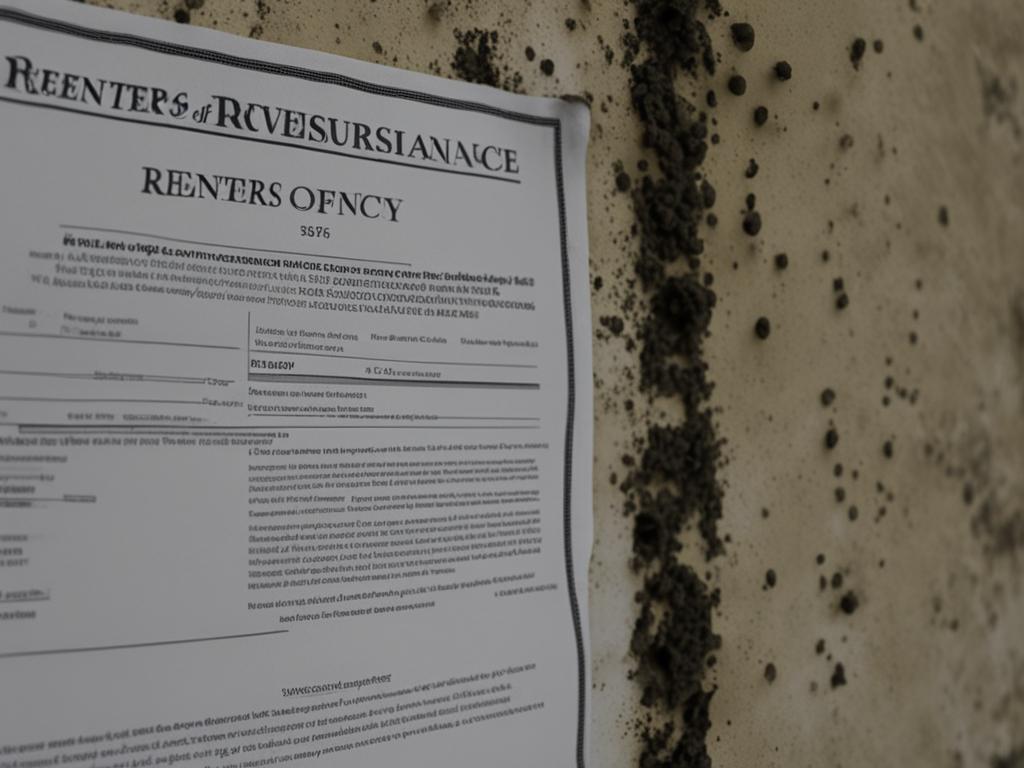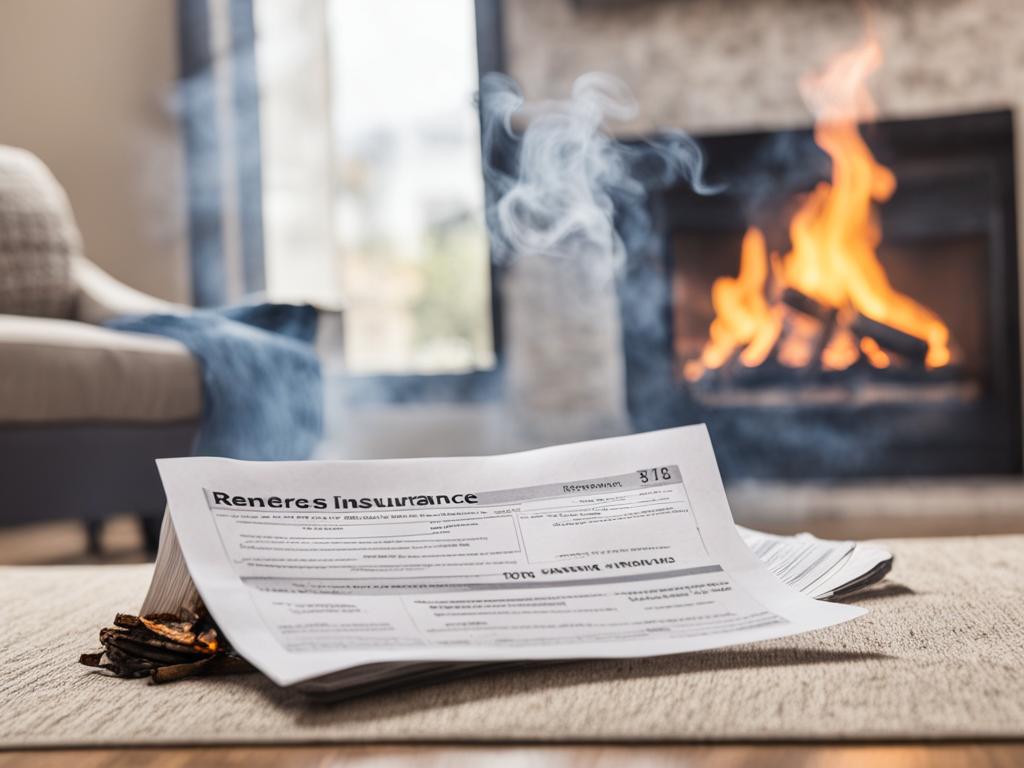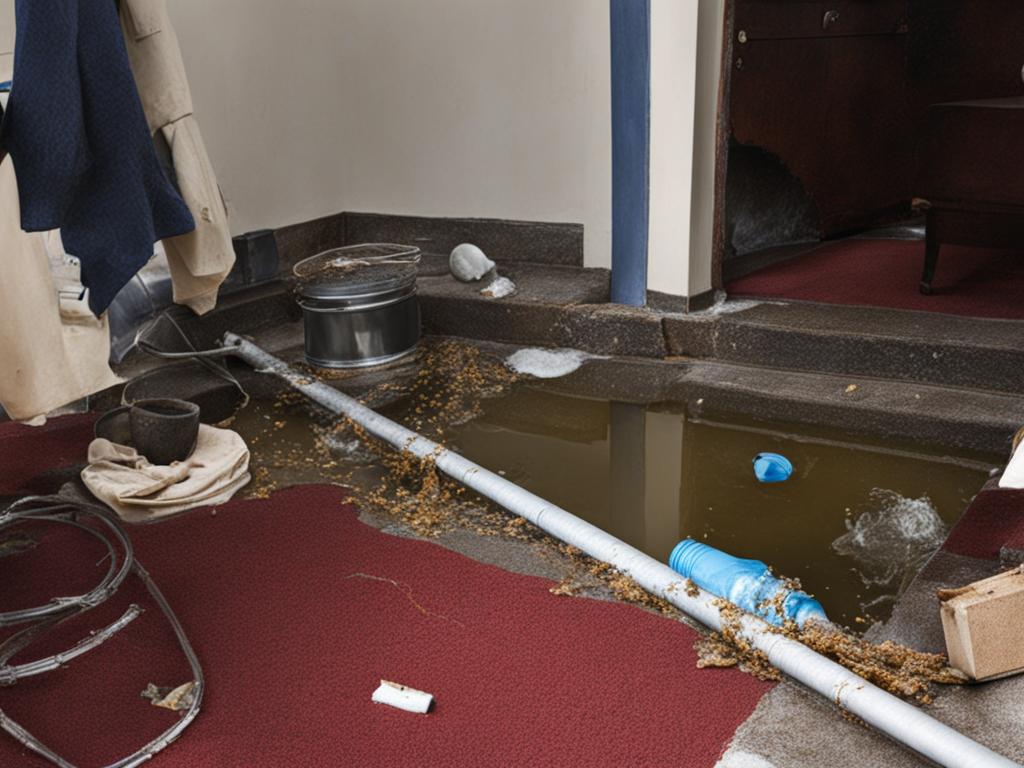Tenant Liability Insurance vs Renters Insurance Duel
When you’re renting a property, it’s important to protect yourself financially in case of unexpected events. That’s where insurance comes in. But with options like tenant liability insurance and renters insurance, it can be confusing to know which one is right for you. Let’s take a closer look at the differences between these two types of insurance to help you make an informed decision.
Key Takeaways:
- Tenant liability insurance and renters insurance are both important for tenants, but they cover different aspects of protection.
- Renters insurance provides coverage for personal belongings, liability, guest medical expenses, and additional living expenses.
- Tenant liability insurance specifically covers claims made against you for property damage or bodily injury caused to others on the rental property.
- Comparing tenant liability insurance and renters insurance can help you determine which coverage is more suitable for your needs.
- Consider additional coverage options for exclusions such as bedbugs, flooding, mold, and valuable belongings.
What Does Renters Insurance Cover?
Renters insurance provides comprehensive coverage to protect you and your belongings in various situations. Let’s take a closer look at the different aspects of renters insurance coverage:
1. Personal Property Coverage
Renters insurance includes personal property coverage, which safeguards your belongings from unexpected events such as fire, theft, vandalism, and more. This coverage helps you replace or repair your damaged or stolen items, ensuring that you can recover financially.
2. Renters Liability Insurance
In addition to personal property coverage, renters insurance also offers liability insurance. This coverage protects you if someone gets injured or their property is damaged due to an incident on your rental property. It can help cover legal expenses and any damages awarded if you are sued.
3. Guest Medical Expenses
Renters insurance typically includes coverage for guest medical expenses. If a visitor gets injured while on your rental property, this coverage can help pay for their medical bills, regardless of who is at fault. It provides peace of mind knowing that you have financial protection in case of an accident or injury.
4. Additional Living Expenses
In the event that your rental unit becomes uninhabitable due to a covered disaster like a fire or natural disaster, renters insurance can cover your temporary living expenses. This includes expenses for alternative accommodations, meals, and even storage costs while your home is being repaired or rebuilt.
Having renters insurance ensures that you have essential protection for your belongings, liability coverage, coverage for guest medical expenses, and additional living expenses.
Now, let’s take a closer look at the coverage for personal property, liability, guest medical expenses, and additional living expenses:
| Type of Coverage | What It Covers |
|---|---|
| Personal Property Coverage | Covers your belongings from damage or loss due to fire, theft, vandalism, and other covered perils. |
| Renters Liability Insurance | Protects you in case of a lawsuit resulting from incidents on your rental property, such as injuries or property damage to others. |
| Guest Medical Expenses | Covers medical expenses if a visitor gets injured on your rental property, regardless of fault. |
| Additional Living Expenses | Provides coverage for temporary living expenses if your rental unit becomes uninhabitable due to a covered disaster. |
Renters insurance provides peace of mind by offering comprehensive coverage for your personal belongings, liability, guest medical expenses, and additional living expenses. It is an essential investment for any tenant, ensuring financial protection and security.
Does Renters Insurance Cover Bedbugs, Flooding, and Mold?
When it comes to the coverage provided by renters insurance, it’s important to understand what is and isn’t included. While renters insurance offers protection for various incidents and damages, there are certain situations for which coverage may not apply.
Firstly, bedbugs and other pests are generally not covered by renters insurance. These issues are often regarded as preventable and therefore fall outside the scope of the policy. To address concerns related to pests, it’s advisable to take preventive measures and maintain a clean living environment.
Flooding is another area where renters insurance typically does not provide coverage. If you live in an area prone to flooding, it’s crucial to consider obtaining separate flood insurance to safeguard your belongings against this specific risk. Flooding can lead to significant property damage and financial loss, making it essential to have tailored coverage in place.
As for mold damage, renters insurance may cover it under certain circumstances. If mold is a result of a covered event, such as an internal water leak, the insurance policy may provide coverage for the necessary repairs and remediation. However, if mold is the outcome of neglect, poor maintenance, or external sources, it likely won’t be covered.
Renters Insurance Coverage for Bedbugs, Flooding, and Mold
| Coverage | Bedbugs | Flooding | Mold |
|---|---|---|---|
| Coverage | No | No | Depends on cause |
| Preventability | Seen as preventable | Requires separate flood insurance | Depends on cause |
It’s important to review your renters insurance policy and understand the specific coverage provided, including any exclusions or limitations. If you have concerns about bedbugs, flooding, or mold, it may be beneficial to discuss these with your insurance provider and explore additional coverage options if needed.

Does Renters Insurance Cover Temporary Housing and Dog Bites?
When unexpected disasters occur, such as a fire or severe storm, you may find yourself in need of temporary housing while your rental property is repaired. Fortunately, renters insurance can provide coverage for additional living expenses, including temporary housing.
With temporary housing coverage, you can receive reimbursement for expenses such as hotel bills, meals, and other necessary costs incurred due to the displacement caused by a covered disaster. This can ease the financial burden and help you maintain a sense of stability during a challenging time.
Additionally, renters insurance may offer coverage for dog bites under certain circumstances. If your dog bites a guest or someone outside of your household, your renters insurance policy may cover the resulting medical expenses and protect you from potential lawsuits.
Note: It’s important to review the details of your renters insurance policy to understand the specific coverage and exclusions related to dog bites. Different policies may have varying terms and conditions.
Having renters insurance can provide peace of mind, knowing that you have financial protection in case of temporary displacement or unexpected incidents involving your dog. Make sure to check with your insurance provider to confirm the extent of coverage for both temporary housing and dog bites under your policy.
Summary:
- Renters insurance can cover temporary housing expenses when you are displaced due to a covered disaster.
- Temporary housing coverage includes reimbursement for hotel bills, meals, and other necessary expenses.
- Some renters insurance policies may offer coverage for dog bites, including medical expenses and liability protection.
- Review your renters insurance policy to understand the specific coverage and exclusions related to temporary housing and dog bites.
Does Renters Insurance Cover Property Damage, Fire, and Car Theft?
When it comes to protecting your personal belongings as a renter, renters insurance is an essential investment. But what exactly does it cover when it comes to property damage, fire, and car theft? Let’s take a closer look.
Property Damage Coverage
Renters insurance typically provides coverage for property damage to your personal belongings. This means that if your belongings are damaged or destroyed due to covered perils such as fire, smoke, water damage, or vandalism, your renters insurance policy will help reimburse you up to the policy limits for the cost of replacing or repairing your items.
For example, if a fire breaks out in your apartment and your furniture, electronics, and clothing are damaged, your renters insurance can help cover the costs of replacing these items.
Fire Coverage
Fire is one of the most common perils covered by renters insurance. Whether a fire starts in your unit or spreads from a neighboring unit, your renters insurance policy typically provides coverage for the damage caused by the fire.
It’s important to note that renters insurance covers the damage to your personal belongings, but it does not cover the actual structure of the rental property. The landlord’s insurance policy typically covers the building itself.

Car Theft Coverage
While renters insurance provides coverage for your personal belongings, it does not typically cover the theft of your car. Car theft is generally covered by your auto insurance policy. If your car is stolen from your rental property or while parked elsewhere, you would need to file a claim with your auto insurance provider.
Additional Living Expenses Coverage
What happens if your rental property becomes uninhabitable due to severe property damage, such as a fire? In these cases, your renters insurance policy may include coverage for additional living expenses.
Additional living expenses coverage helps pay for the costs associated with temporarily living elsewhere while your rental property is being repaired. This can include expenses such as hotel bills, meals, and transportation. It’s important to check the specific details of your policy to understand the coverage limits and duration of this benefit.
| What’s Covered | What’s Not Covered |
|---|---|
| Property damage to personal belongings | Structural damage to rental property |
| Damage caused by fire or smoke | Theft of vehicles |
| Additional living expenses due to uninhabitable rental property | – |
As you can see, renters insurance provides valuable coverage for property damage, fire, and additional living expenses. However, it’s important to note the limitations of coverage when it comes to car theft and structural damage to the rental property itself.
What Isn’t Covered by Renters Insurance?
While renters insurance offers coverage for various disasters and situations, it’s important to be aware of the exclusions to ensure you have a comprehensive understanding of your policy. Here are some key areas that may not be covered:
1. Renters Insurance Exclusions
There are certain exclusions to renters insurance that you should be aware of. Reviewing these exclusions will help you better understand the limitations of your policy and make informed decisions. It is essential to carefully read your insurance policy to understand the specific exclusions that apply.
2. Valuable Belongings Coverage
While renters insurance generally covers personal belongings, there may be limitations on the coverage for valuable items such as jewelry, artwork, or collectibles. It’s essential to check the coverage limits and consider additional coverage, such as a scheduled personal property endorsement, to protect high-value belongings.
3. Fixtures and Appliances Coverage
Fixtures and appliances that come with the rental unit are typically not covered by renters insurance. These items, such as built-in appliances, lighting fixtures, or kitchen cabinets, are generally the responsibility of the landlord or property owner. It’s important to understand your responsibilities as a tenant and clarify any coverage concerns with your landlord.
4. Personal Property of Other Household Occupants Coverage
The coverage for personal property of other household occupants can vary depending on state regulations and insurance company policies. Some policies may have specific provisions for family members or roommates, while others may not extend coverage to their belongings. It’s crucial to discuss this aspect with your insurance provider to ensure that everyone in your household has appropriate coverage for their personal belongings.
To better understand the limits and exclusions of your policy, it’s advisable to review your renters insurance policy documents and consult with your insurance provider. This will help you ensure that you have adequate coverage for your specific needs and mitigate any potential gaps in protection.

| Exclusions | Coverage Limitations |
|---|---|
| Bedbugs and other pests | May not be covered |
| Flooding | Requires separate flood insurance |
| Mold caused by neglect, poor maintenance, or external sources | May not be covered |
Conclusion
As a tenant, understanding the differences between tenant liability insurance and renters insurance is crucial in choosing the right coverage for your needs. Renters insurance offers comprehensive protection, including coverage for your personal belongings, liability, guest medical expenses, and additional living expenses. However, it’s important to note that certain situations such as bedbugs, flooding, and mold may not be covered under a standard policy. It is advisable to review your policy’s exclusions and consider additional coverage options to address these specific needs.
When evaluating your insurance benefits as a tenant, it’s essential to consider the value of your belongings and any high-value items you own. While renters insurance provides coverage for personal belongings, there may be limits on certain valuable items. To ensure adequate protection, it’s recommended to assess your coverage limits and consider additional coverage.
Regardless of the type of coverage you choose, understanding your options and reviewing your policy is vital. By proactively managing your tenant coverage, you can make informed decisions to safeguard your belongings and protect yourself from liability. Whether it’s renters insurance or tenant liability insurance, having the right insurance benefits provides peace of mind and financial security as a tenant.
FAQ
What is the difference between tenant liability insurance and renters insurance?
Tenant liability insurance and renters insurance are two types of insurance coverage that are important for tenants. While they may sound similar, there are key differences between the two. Tenant liability insurance typically covers the tenant’s liability for damages to the rental property, while renters insurance provides coverage for personal belongings, liability, guest medical expenses, and additional living expenses.
What does renters insurance cover?
Renters insurance provides coverage for a variety of situations. It typically includes personal property coverage, which protects your belongings from disasters like fire, theft, and vandalism. Renters liability insurance is also included, which covers you in case of a lawsuit resulting from incidents on the rental property. Additionally, renters insurance includes coverage for guest medical expenses and additional living expenses in case of temporary relocation due to a covered disaster.
Does renters insurance cover bedbugs, flooding, and mold?
Renters insurance usually does not cover damage caused by bedbugs or other pests, as these are seen as preventable issues. It also typically does not cover flooding, as this requires a separate flood insurance policy. As for mold damage, renters insurance may cover it if it is caused by a covered event, such as an internal water leak. However, mold caused by neglect, poor maintenance, or external sources may not be covered.
Does renters insurance cover temporary housing and dog bites?
Renters insurance includes coverage for additional living expenses, which means it can provide reimbursement if you are forced to temporarily relocate due to a covered disaster. This coverage helps cover costs such as hotel bills and meals while you are unable to live in your rental property. Additionally, renters insurance may cover dog bites under certain circumstances, such as if the policyholder’s dog bites a guest or someone outside of the household. This coverage can include medical expenses and protection from a lawsuit.
Does renters insurance cover property damage, fire, and car theft?
Renters insurance typically covers property damage to the policyholder’s personal belongings up to the policy limits. This includes damage or loss caused by fire or smoke. However, it’s important to note that renters insurance does not cover the actual vehicle in case of car theft; that is covered by auto insurance. Regular moving costs are not covered, but if you are forced to relocate due to severe damage to your rental property, additional living expenses coverage can help cover moving costs.
What isn’t covered by renters insurance?
While renters insurance covers a wide range of disasters and situations, there are several exclusions to be aware of. Certain valuable belongings may have limited coverage under a standard policy, so it’s important to check the coverage limits and consider additional coverage for high-value items. Fixtures and appliances that come with the rental unit are typically not covered, as they are the landlord’s responsibility. Additionally, coverage for personal property of other household occupants may vary depending on state regulations and insurance company policies.
What are the insurance benefits for tenants?
When it comes to tenant liability insurance vs renters insurance, it’s essential to understand the differences and choose the right coverage for your needs as a tenant. Renters insurance provides coverage for personal belongings, liability, guest medical expenses, and additional living expenses. It does not cover certain situations such as bedbugs, flooding, and mold, but additional coverage may be available. It’s important to review the exclusions and consider additional coverage for valuable belongings and other specific needs. By understanding your coverage options, you can make an informed decision and ensure you have the right insurance benefits as a tenant.

